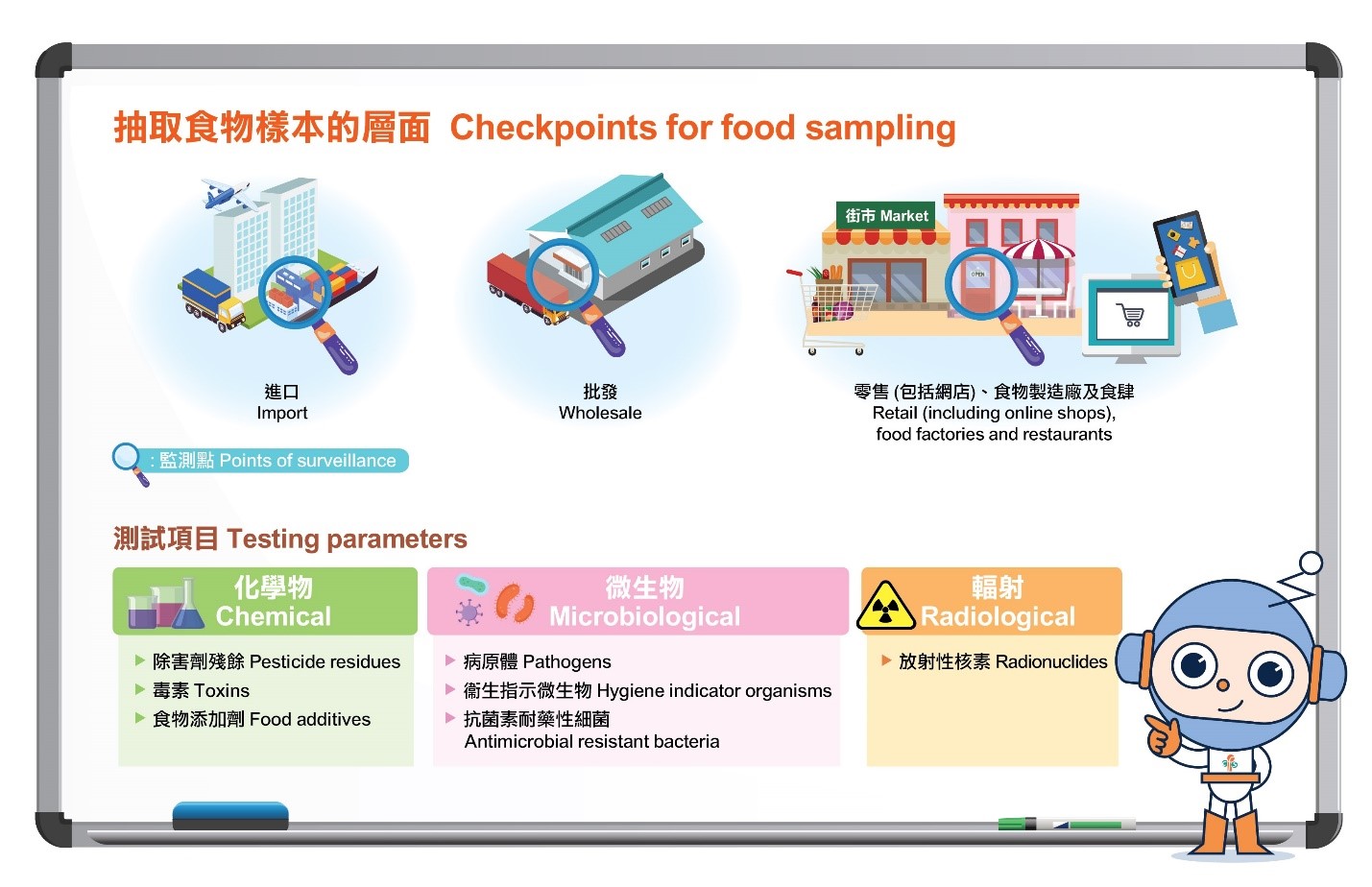

Food surveillance is a crucial component of an extensive food control system that enhances food safety and public health. This system includes upstream measures such as import protocols for high-risk foods, regulations and standards, and downstream activities like food surveillance, all working in collaboration.
Food Surveillance in Hong Kong
In Hong Kong, the Food Surveillance Programme (FSP) conducts safety tests on about 65,000 food samples each year, which translates to about 9 samples per 1,000 people. To protect public health, it is essential to maintain vigilant oversight and take immediate risk management steps in response to any unfavorable outcomes from the FSP.
Throughout the year, the CFS collects food samples at various levels including import, wholesale, and retail/catering. With the rise in online shopping, a portion of retail samples are now also procured through online platforms, reflecting the changing consumer behaviour towards internet purchasing.

The CFS's FSP is structured to monitor a broad spectrum of foods and potential risks, incorporating seasonal variations. It includes routine, targeted, and seasonal surveillance projects:
- Routine surveillance: covers key food groups like vegetables, fruits, meat, poultry, aquatic products, dairy products and eggs, ensuring compliance with food safety standards.
- Targeted surveillance: addresses specific risks such as the illegal addition of sulphur dioxide in fresh meat or the presence of Cronobacter sakazakii in infant milk powder.
- Seasonal surveillance: aligns with cultural festivals or seasonal consumption patterns, examining foods like rice dumplings during the Tuen Ng Festival or mooncake during Mid-Autumn Festival, ensuring food safety during peak consumption periods.
The FSP systematically collects and analyses a wide array of food samples, with the testing scope including chemical, microbiological and radiological hazards, ranging from food additives and contaminants to pathogens and radiological parameters, as well as antimicrobial resistance bacteria. In addition, the FSP helps:
- enforces regulatory compliance and prosecutes non-compliant entities.
- supports risk management and communication strategies, which is achieved via press releases, social media and other platforms when samples do not meet safety standards. Food Safety Reports are released regularly to keep the public informed.
Food Surveillance Results
For the latest monthly Food Safety Reports and Food Surveillance Results, as well as major food incidents and ban on import and sale of food products, please refer to the press releases.
Food Surveillance Results for 2024
- Food Safety Report for September 2024

- Food Safety Report for August 2024
- Food Safety Report for July 2024
- Food Safety Report for June 2024
- Food Safety Report for May 2024
- Food Safety Report for April 2024
- Food Safety Report for March 2024
- Food Safety Report for February 2024
- Food Safety Report for January 2024
Past Food Surveillance Results
Seasonal Food Surveillance
- CFS announces test results of seasonal food surveillance project on lap-mei (with photo)

- Test results of seasonal food surveillance project on hairy crabs all satisfactory
- Test results of seasonal food surveillance project on mooncakes (second phase) all satisfactory (with photo)
- Test results of seasonal food surveillance project on mooncakes (first phase) all satisfactory (with photo)
- CFS announces results of seasonal food surveillance on rice dumplings (second phase) (with photo)
- CFS announces results of seasonal food surveillance on rice dumplings (first phase) (with photo)
- Centre for Food Safety announces test results of Lunar New Year food (second phase)
- Centre for Food Safety announces test results of Lunar New Year food (first phase)